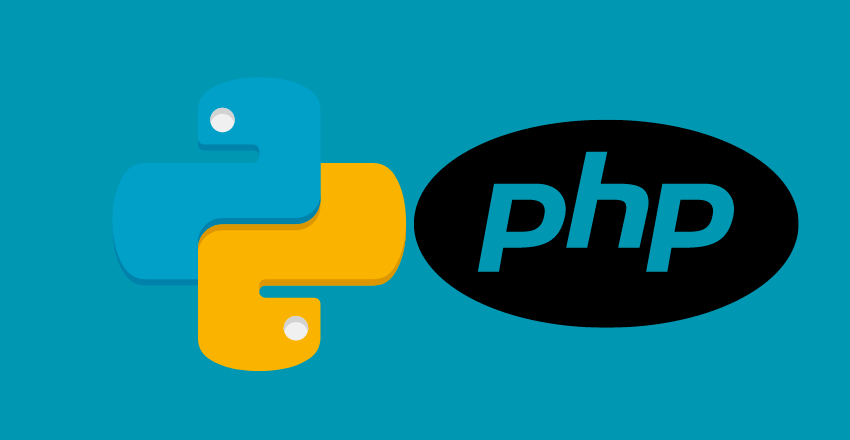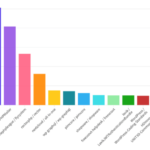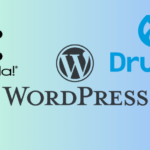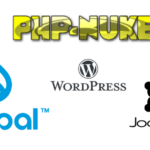Ever found yourself standing at the crossroads of PHP and Python, wondering which path to take for your web development project? You’re not alone.

Understanding PHP and Python
PHP: The Web-Centric Language
Stands for “PHP: Hypertext Preprocessor,” is like that old reliable friend who’s been around since the 90s, helping to build some of the most popular websites like Facebook and WordPress.
PHP: A Closer Look
PHP, short for “PHP: Hypertext Preprocessor,” was specifically designed for web development. It’s a server-side scripting language, meaning it runs on the server before sending the HTML to the user’s browser.
Here’s a simple example of PHP code:
<?php echo "Hello, World!"; ?>This script simply outputs “Hello, World!” onto your webpage.
PHP is embedded within HTML code, which makes it rather straightforward for adding dynamic content to a website. Here’s an example:
<!DOCTYPE html> <html> <body> <h1>My first PHP page</h1> <?php echo "Hello, World!"; ?> </body> </html>In this case, the text “Hello, World!” will be inserted into the HTML by the server before the page is sent to the user.
Tip: I highly recommend taking advantage of PHP’s robust standard library. It’s full of handy functions that can make your life easier. Also, consider using frameworks like Laravel or Symfony for a structured and efficient development process.
Python: The Versatile Powerhouse
Then there’s Python, the Swiss Army knife of programming languages. It’s like a multi-talented prodigy that’s great for web development, data science, artificial intelligence, and more. Plus, it’s known for being friendly to beginners.
Python: A Deeper Dive
Python, named after the British comedy group “Monty Python,” is known for its simplicity and versatility. It’s often used for web development, data analysis, machine learning, AI, and more.
Here’s the Python equivalent of the PHP script above:
print("Hello, World!")Python isn’t typically embedded within HTML like PHP. Instead, it’s often used with frameworks like Django or Flask to handle the backend of web applications.
Here’s a simple Flask application:
from flask import Flask app = Flask(__name__) @app.route('/') def home(): return "Hello, World!" if __name__ == '__main__': app.run()This Python script, using Flask, creates a web server that serves the text “Hello, World!” when you navigate to the homepage.
As someone well-versed in PHP, I admire Python’s readability and simplicity. For instance, Python uses indentation to define blocks of code, making it exceptionally clean and easy to understand.
Plus, the vast ecosystem of Python libraries, like NumPy for numerical computations or BeautifulSoup for HTML parsing, is a treasure trove for developers.
PHP vs Python: A Comparison Table
| Feature | PHP | Python |
|---|---|---|
| Design | Primarily for web development | General-purpose language |
| Syntax | More complex, similar to C | Simple and clean |
| Web Frameworks | Laravel, Symfony, CodeIgniter | Django, Flask, Pyramid |
| Use Cases | Websites and web applications | Web development, data analysis, machine learning |
| Performance | Faster in web-specific tasks | Versatile but can be slower in web-specific tasks |
| Learning Curve | Easy to start, harder to master | Easy to learn and master |
| Community | Large with lots of resources | Huge and rapidly growing |
Remember, both PHP and Python have their strengths and weaknesses. PHP shines in its speed and compatibility in web development, while Python stands out with its simplicity and versatility. The choice between the two depends on your project’s needs, your team’s skills, and your long-term goals.
Comparing PHP and Python in Web Development
Performance Comparison
Both PHP and Python are speedy runners in the race of web development. However, PHP slightly edges out with its built-in web development capabilities, while Python’s versatility can sometimes slow it down.
Learning Curve for New Developers
Think of PHP as riding a bike and Python as driving a car. PHP is easy to start with, but mastering it can be tricky. On the other hand, Python, with its clean and simple syntax, is like driving an automatic car – smooth and effortless to learn.
Compatibility and Integration Capabilities
Both languages play well with others. PHP, being the older of the two, has a vast array of libraries and frameworks, while Python is known for its powerful frameworks like Django and Flask.
Syntax and Coding Style Comparison
PHP’s syntax can be a bit like a plate of spaghetti – it works, but it can get messy. Python, on the other hand, is like arranged sushi rolls – clean, straightforward, and easy to read.
Pros and Cons of Using PHP and Python for Web Development
Having worked extensively with PHP and dipped my toes into Python, I’ve gained a unique perspective on the pros and cons of both languages in the realm of web development.
Let’s take a deep dive into each, filled with examples, tips, and a comparative overview.
Strengths and Weaknesses of PHP
Strengths of PHP
1. Built for the Web: PHP was specifically designed for web development. It’s embedded within HTML code, making it straightforward for creating dynamic web pages. Here’s an example of a dynamic PHP script that displays the current date and time:
<?php echo "Today's date is " . date('Y-m-d') . " and the time is " . date('H:i:s'); ?>2. Speed: PHP is quite speedy, especially when it comes to web-specific tasks. Running on the server-side, it enables fast load times and efficient processing.
3. Compatibility: PHP is compatible with almost all servers (like Apache or IIS) and supports a wide range of databases. Plus, it’s virtually platform-independent, running on Windows, Unix, Linux, and more.
Weaknesses of PHP
1. Messy Code: PHP can get a bit messy, especially for larger projects or among teams. Its flexibility, while a strength, can lead to inconsistency in coding styles. PHP requires discipline to keep the code clean and maintainable.
2. Poor Error Handling: PHP’s error handling isn’t as streamlined as Python’s. It can sometimes be challenging to debug the code, and error messages might not be as clear.
Strengths and Weaknesses of Python
Strengths of Python
1. Readability: Python shines with its clean, easy-to-read syntax. It forces good coding habits (like indentation) that result in neat, readable code. Consider this simple script to display a greeting message:
def greet(name): return f"Hello, {name}!" print(greet("World"))2. Versatility: Python is a general-purpose language and not just for web development. It’s widely used in scientific computing, data analysis, machine learning, and more.
3. Exceptional Error Handling: Python has a solid mechanism for handling exceptions, making debugging a smoother process.
Weaknesses of Python
1. Slower in Web-Specific Tasks: Python is a versatile powerhouse, but it can be slower than PHP in web-specific tasks due to the general-purpose nature of the language.
2. Less Ideal for Mobile Development: While Python is great for server-side development, it’s less commonly used for mobile application development.
PHP vs Python: Pros and Cons at a Glance
| Language | Strengths | Weaknesses |
|---|---|---|
| PHP | – Built for web development – Fast performance – High compatibility | – Can lead to messy code – Error handling could be better |
| Python | – Easy-to-read syntax – Versatile – Good error handling | – Slower in web-specific tasks – Less ideal for mobile development |
Whether PHP’s web-centric performance or Python’s simplicity and versatility wins you over, remember that both are capable languages with vibrant communities.
The choice depends on your project requirements and personal preference.
Case Studies: Successful Web Development Projects Using PHP and Python
With my deep roots in PHP and some adventure into Python territory, I’ve observed how both languages have driven web development projects to success.
Let’s delve into a couple of case studies for each language.
PHP Case Studies
1. Facebook
PHP’s biggest claim to fame is Facebook. Initially, the entire social networking site was built on PHP. Although Facebook now incorporates other languages, it still relies on PHP via a custom version called HHVM (HipHop Virtual Machine). This modified version compiles PHP into bytecode, which significantly enhances performance.
Facebook’s journey is a testament to PHP’s power to build and scale a web application that supports billions of users worldwide.
2. WordPress
WordPress, powering about 40% of all websites globally, is a content management system built primarily using PHP. The ease of PHP coding allows WordPress to offer customization and flexibility, making it a popular choice for bloggers, small businesses, and even large news platforms.
Here’s a simple example of a WordPress plugin written in PHP, demonstrating how PHP facilitates dynamic content creation:
<?php /** * Plugin Name: Greetings Plugin */ function hello_world() { echo 'Hello, world!'; } add_action('wp_footer', 'hello_world'); ?>This WordPress plugin would display “Hello, world!” at the bottom of every page on your WordPress site.
Python Case Studies
1. Instagram
One of the world’s most popular social media platforms, utilizes Python in its backend. Instagram engineers opted for Python because of its simplicity and the fact that most of their engineers were already familiar with it.
The Django web framework, written in Python, powers Instagram’s server-side operations.
This case shows Python’s ability to handle a massive user base while maintaining performance and scalability.
2. Google
Python extensively used by Google. In fact, Python is one of the few official languages at Google. It’s used for various applications, including data analysis, machine learning, and even parts of Google’s search engine.
While Google’s Python code is proprietary, here’s a simple Python script demonstrating Google’s sentiment analysis API:
from google.cloud import language_v1 def analyze_text_sentiment(text): client = language_v1.LanguageServiceClient() document = language_v1.Document(content=text, type_=language_v1.Document.Type.PLAIN_TEXT) response = client.analyze_sentiment(request={'document': document}) sentiment = response.document_sentiment print("Text: {}".format(text)) print("Sentiment: {}, {}".format(sentiment.score, sentiment.magnitude)) analyze_text_sentiment("I love Python!")This script uses Google’s Natural Language API to determine the sentiment of a given text.
PHP vs Python: Impact in the Real World
| Language | Successful Use Case |
|---|---|
| PHP | Facebook: Demonstrates PHP’s capacity for handling a massive user base. WordPress: Highlights PHP’s ability to offer customization and flexibility. |
| Python | Instagram: Showcases Python’s capability for maintaining performance and scalability. Google: Manifests Python’s utility in areas like data analysis and machine learning. |
As these case studies illustrate, both PHP and Python have played pivotal roles in building some of the world’s most visited web platforms. Therefore, it’s less about PHP vs Python and more about selecting the right tool for the job, based on the specific requirements and constraints of your project.
Factors to Consider When Choosing Between PHP and Python for Your Project

As a long-time PHP developer with a working knowledge of Python, I understand that the choice between these two languages isn’t always straightforward.
Here are several factors to consider when making your decision:
1. Project Requirements
Consider the nature and scope of your project. If it’s a web-centric project—say, a content management system or a blog—PHP’s web-first nature could make it a strong candidate.
For instance, WordPress, built with PHP, would be a great fit for such projects.
On the other hand, if your project involves data science, machine learning, or needs a language that can handle a variety of tasks beyond just web development, Python is a more fitting choice.
For instance, if your web application requires sentiment analysis, Python, with libraries like NLTK or integration with Google’s Natural Language API, would excel.
2. Developer Skill Set
The expertise of your development team is a critical factor. PHP and Python have different learning curves. PHP, being a little lenient with coding rules, might be easier to start with, but Python’s strict syntax promotes good coding habits and is often praised for its readability.
Consider this PHP script versus its Python equivalent:
PHP Code:
$name = "World"; echo "Hello, " . $name . "!";Python Code:
name = "World" print(f"Hello, {name}!")The Python code seems cleaner and more intuitive, but if your team is already skilled in PHP, the learning curve for Python could offset this advantage.
3. Community and Library Support
Both languages have robust communities and extensive libraries, but their strengths differ. PHP’s community is web-focused, providing a wide range of resources for web-specific issues.
Python’s community, on the other hand, is diverse, reflecting the language’s wide-ranging use cases—from web development to data science and AI.
4. Performance and Speed
While both languages have improved their performance over the years, PHP generally offers faster speeds for web-specific tasks due to its web-centric design. But remember, while important, raw performance isn’t everything.
Readability, maintainability, and suitability for your project’s tasks are equally, if not more, important.
5. Long-Term Considerations
Consider the longevity and future scalability of your project. While PHP is excellent for web development, Python’s versatility can make it a better choice for projects expected to extend beyond web development. Additionally, Python’s clean syntax makes it easier to maintain and scale over the long run.
PHP vs Python: Key Considerations
| Consideration | PHP | Python |
|---|---|---|
| Project Requirements | Excellent for web-focused projects. | Suitable for diverse tasks, including web development, data science, machine learning, etc. |
| Developer Skill Set | Easier learning curve, but can lead to messier code. | Slightly steeper learning curve, but promotes clean and efficient code. |
| Community Support | Strong, web-focused community. | Robust, diverse community spanning multiple disciplines. |
| Performance | Fast for web-specific tasks. | Versatile and powerful, but sometimes slower for web-specific tasks. |
| Long-Term Considerations | Good for straightforward web projects. | Excellent for projects requiring scalability and diversification. |
Ultimately, your choice between PHP and Python will hinge on your specific project requirements, team expertise, and long-term goals. Remember, the “best” language is always the one that suits your project’s needs most effectively.
Community Opinions and Professional Recommendations

As an experienced PHP developer who’s also familiar with Python, I have a deep appreciation for both languages. But don’t just take my word for it! Let’s consider what other professionals and the broader coding community have to say about PHP and Python for web development.
Professional Opinions
Renowned software engineer Rasmus Lerdorf, the creator of PHP, has always maintained that PHP was never meant to be a programming language, but a tool to solve the web problem. His belief underpins PHP’s strength—it is superbly fit for purpose, designed from the ground up with web development in mind.
On the other hand, Guido van Rossum, Python’s creator, aimed to design a language that emphasized code readability with a syntax that allows programmers to express concepts in fewer lines of code.
Many Python developers have echoed this vision, praising Python for its clean, efficient syntax and versatility, extending beyond web development into data analysis, machine learning, and more.
Community Opinions
According to the Stack Overflow Developer Survey, Python is one of the most loved languages, while PHP has a mixed reputation. It’s crucial to interpret these results in context—PHP’s mixed reputation comes from early versions of PHP that were less robust and more chaotic than current versions.
Python, due to its versatility and clean syntax, has cultivated a passionate fan base. The language’s simplicity makes it a favorite among beginners, while its power and wide range of libraries and frameworks make it a potent tool for seasoned developers.
However, PHP’s web-centric nature and its continued development—thanks to a dedicated community—make it a solid choice for web development. The PHP community has been continually modernizing, with frameworks like Laravel offering advanced, efficient web development capabilities.
Let’s look at a simple comparison:
| Language | Professional Endorsement | Community Perception |
|---|---|---|
| PHP | Ideal for web problems (Rasmus Lerdorf) | Mixed but improving, particularly strong in web development |
| Python | Designed for readability and simplicity (Guido van Rossum) | Very positive, appreciated for versatility and ease of use |
Community Resources
PHP’s vast array of web-focused resources, such as PHP.net and PHP The Right Way, provide valuable guidance. For Python, websites like Python.org and Real Python offer a wealth of information, catering to a wide variety of Python applications.
Ultimately, the choice between PHP and Python will depend on your project’s specific requirements and your team’s expertise. Both languages have their strengths and are continually evolving, driven by active communities and professional developers worldwide.
People also ask
Should I learn PHP or Python?
The decision to learn PHP or Python will depend on your goals. If you aim to specialize in web development, especially on the server-side and working with systems like WordPress, PHP would be the excellent choice. PHP was designed with the web in mind, and it excels in this area.
// Basic PHP script echo "Hello, World!";If you’re interested in a more general-purpose language that can handle web development but also branch into areas like data analysis, machine learning, or desktop app development, Python would be the better choice.
# Basic Python script print("Hello, World!")Why use Python instead of PHP?
Python is known for its clean, efficient syntax that’s easy to learn and read, making it a favorite among many programmers. It’s a versatile language that’s not only great for web development but also widely used in data analysis, machine learning, artificial intelligence, scientific computing, and more.
Python has a wide range of robust frameworks like Django and Flask that make web development easier. For instance, Django includes functionalities needed for web development, which removes the need for third-party tools—a feature that isn’t as common in PHP frameworks.
Here’s a basic Django view:
from django.http import HttpResponse def hello_world(request): return HttpResponse("Hello, World!")Can Python replace PHP?
Python could replace PHP in certain cases, especially where the project requires capabilities beyond web development or involves areas where Python excels, like data analysis, AI, or machine learning.
However, PHP still shines when it comes to specific web-related tasks, especially when using systems like WordPress or Drupal, or when dealing with servers that support PHP natively. Remember, the best tool often depends on the task.
Is PHP the best choice for web development?
“Best” is subjective and depends on the specific needs of a project. PHP is certainly a powerful choice for web development—it’s been built for the web, has a rich ecosystem of frameworks (like Laravel and Symfony), and boasts a huge community.
Here’s an example of a basic Laravel route:
// Basic Laravel route Route::get('/', function () { return 'Hello, World!'; });However, Python—with frameworks like Django and Flask—also offers a fantastic suite of tools for building websites and shouldn’t be discounted. The key is to identify your project’s needs, your team’s skills, and the long-term goals of the project.
Pro tip: it’s a good practice to keep learning and adapting, no matter which language you choose. Both PHP and Python are constantly evolving, and being able to grow with them will make you a stronger, more flexible developer.
FAQs for, “Should I use PHP or Python for web development?”

Q: Can PHP and Python be used together on the same project?
A: While it is technically possible, mixing Python and PHP in the same project is generally not advisable due to the complexity it would introduce. It’s better to select one primary language based on your project’s needs.
# Python code def greet(name): return f"Hello, {name}!" print(greet("world")) # Outputs: Hello, world!// PHP code function greet($name) { return "Hello, " . $name . "!"; } echo greet("world"); // Outputs: Hello, world!Q: Does PHP or Python offer better error handling?
A: Both languages have robust error handling capabilities. PHP uses a combination of errors, warnings, and exceptions, while Python uses a system of exceptions. Both are effective and it often comes down to personal preference.
// PHP error handling try { echo intdiv(1, 0); } catch (DivisionByZeroError $e) { echo "You tried to divide by zero!"; }# Python error handling try: print(1 / 0) except ZeroDivisionError: print("You tried to divide by zero!")Q: Which has more robust frameworks, PHP or Python?
A: Both PHP and Python have robust frameworks. For PHP, Laravel and Symfony are popular. For Python, Django and Flask are commonly used. The choice usually depends on the specific needs of your project.
Q: Which is faster for web development, PHP or Python?
A: In terms of real-world web performance, differences are often negligible and overshadowed by other factors like database design and server configuration.
Q: Which has better support for asynchronous programming, PHP or Python?
A: Both Python and PHP have tools for asynchronous programming. Python’s asyncio library is built into the language. PHP, with Swoole or ReactPHP, supports asynchronous I/O operations.
Q: Which is more secure for web development, PHP or Python?
A: Both languages have tools and practices to write secure code. In the end, the security of your application will depend more on proper security practices than the language itself.
Q: Are there any famous websites built with PHP and Python?
A: Yes, many popular websites are built with these languages. Facebook and WordPress.com are examples for PHP. Google and Instagram use Python.
Q: Which language offers better support for microservices, PHP or Python?
A: Both languages can be used to build microservices. Python, with Flask and Django, and PHP, with Lumen (a micro-framework by Laravel), are well-equipped for this architectural style.
Q: How is the job market for PHP and Python developers?
A: Both PHP and Python developers have robust job markets, but the demand may vary based on the industry and location. Python has seen a surge in popularity due to its use in data science, while PHP remains popular for web development.
Wrapping up: Making Your Decision
Remember, the choice between PHP and Python for web development isn’t a one-size-fits-all answer. Consider your project needs, your team’s skills, and the long-term implications.
We’d love to hear about your experiences with PHP and Python in web development. Share your thoughts in the comments, and don’t forget to pass this post along to others who might find it helpful.
Ashley is an esteemed technical author specializing in scientific computer science. With a distinguished background as a developer and team manager at Deloit and Cognizant Group, they have showcased exceptional leadership skills and technical expertise in delivering successful projects.
As a technical author, Ashley remains committed to staying at the forefront of emerging technologies and driving innovation in scientific computer science. Their expertise in PHP web development, coupled with their experience as a developer and team manager, positions them as a valuable resource for professionals seeking guidance and best practices. With each publication, Ashley strives to empower readers, inspire creativity, and propel the field of scientific computer science forward.







